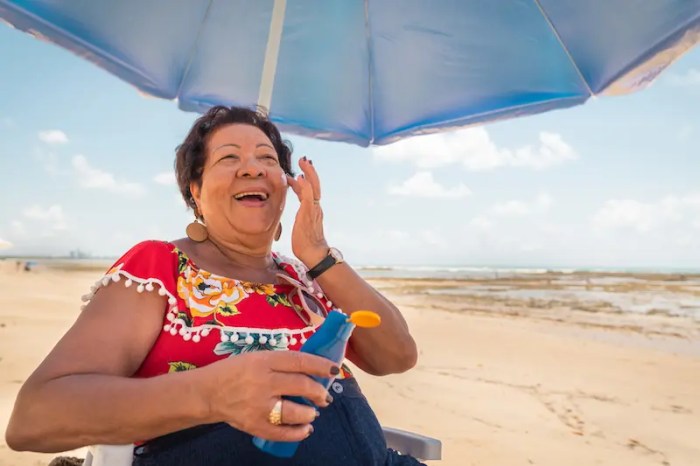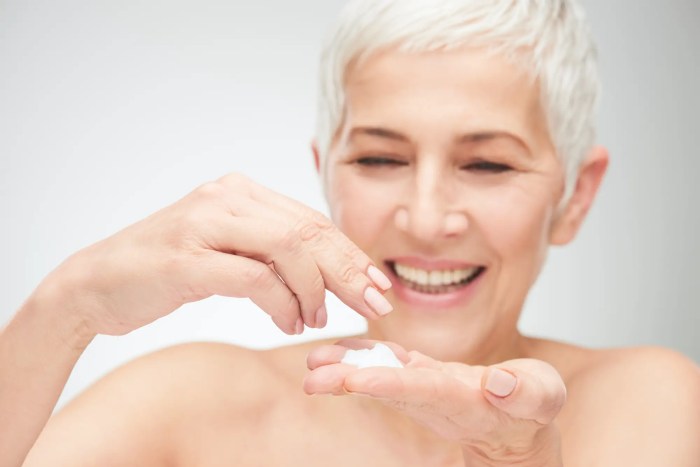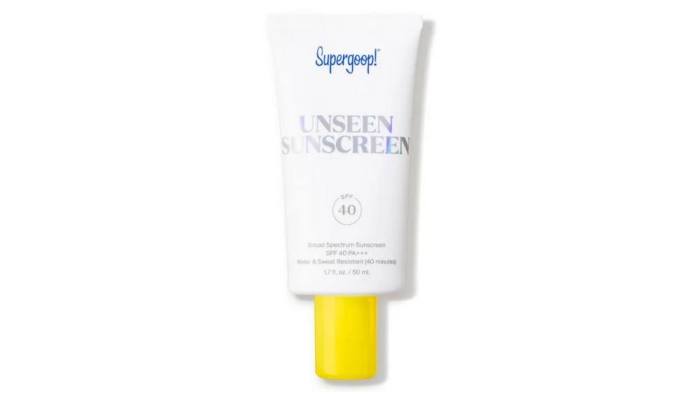With best sunscreen for seniors at the forefront, this paragraph opens a window to an amazing start and intrigue, inviting readers to embark on a storytelling journey filled with unexpected twists and insights. Aging skin poses unique challenges when it comes to sun protection, but we’re here to guide you through the maze of options and considerations, empowering you to make informed choices for your senior loved ones.
The content of the second paragraph that provides descriptive and clear information about the topic
Introduction
Sun protection is crucial for seniors as their skin is more susceptible to sun damage due to reduced melanin production and a weakened immune system. Moreover, seniors often spend more time outdoors, increasing their exposure to harmful UV rays.
When choosing sunscreen, seniors face unique challenges. Their skin may be more sensitive and prone to irritation, so they need to select products that are gentle and hypoallergenic. They may also have difficulty applying sunscreen evenly and thoroughly due to reduced mobility or dexterity.
Types of Sunscreen
There are two main types of sunscreen: chemical and mineral. Chemical sunscreens absorb UV rays and convert them into heat, while mineral sunscreens physically block UV rays from penetrating the skin. Both types of sunscreen can be effective, but mineral sunscreens are generally considered to be gentler on the skin.
Factors to Consider When Choosing Sunscreen for Seniors

When choosing sunscreen for seniors, it is important to consider several factors to ensure optimal protection and skin health. These factors include:
Skin Type
The type of sunscreen you choose should be appropriate for your skin type. Seniors with dry or sensitive skin may prefer a sunscreen with a thicker, more emollient texture, while those with oily or acne-prone skin may prefer a lighter, oil-free formula.
Sun Exposure
The amount of sun exposure you receive will also influence the type of sunscreen you need. If you spend a lot of time outdoors, you will need a sunscreen with a higher SPF (sun protection factor). An SPF of 30 or higher is generally recommended for seniors.
Medical Conditions
Certain medical conditions can affect the way your skin reacts to sunscreen. For example, seniors with rosacea or eczema may need to use a sunscreen that is specifically formulated for sensitive skin.
Medications
Some medications can make your skin more sensitive to the sun. If you are taking any medications, be sure to talk to your doctor about whether or not you need to use sunscreen.
Types of Sunscreens

Sunscreens are broadly categorized into three main types: chemical sunscreens, physical sunscreens, and combination sunscreens. Each type has its own unique properties and advantages.
Chemical Sunscreens
Chemical sunscreens work by absorbing ultraviolet (UV) radiation and converting it into heat, which is then released from the skin. They contain ingredients such as oxybenzone, avobenzone, and octinoxate, which are effective in blocking both UVA and UVB rays. Chemical sunscreens are generally lightweight, easy to apply, and provide broad-spectrum protection.
However, some people may experience skin irritation or allergic reactions to certain chemical ingredients.
Physical Sunscreens
Physical sunscreens, also known as mineral sunscreens, work by creating a physical barrier on the skin that reflects and scatters UV radiation. They contain ingredients such as zinc oxide and titanium dioxide, which are naturally occurring minerals that provide broad-spectrum protection.
To stay safe under the sun, it’s crucial for seniors to use the best sunscreen for their skin. Sun protection helps prevent skin cancer and premature aging. Moreover, understanding heatstroke prevention for seniors is equally important, as heatstroke can be fatal if not treated promptly.
Therefore, seniors should wear sunscreen whenever they are outdoors, even on cloudy days. It’s also essential to stay hydrated and take breaks in the shade to avoid overheating.
Physical sunscreens are generally considered to be less irritating than chemical sunscreens and are suitable for sensitive skin. However, they can be thicker and more difficult to apply, and may leave a white cast on the skin.
Combination Sunscreens
Combination sunscreens contain both chemical and physical sunscreen ingredients, providing a balance of benefits. They offer broad-spectrum protection, are less likely to cause skin irritation, and may be easier to apply than physical sunscreens alone. However, they may not be as effective as pure chemical or physical sunscreens.The
While sunscreens are vital for seniors, it’s equally crucial to stay cool during the summer. Staying cool in summer for seniors is essential for their health and well-being. Seniors can prevent heat-related illnesses by wearing loose-fitting, light-colored clothing, staying hydrated, and seeking shade.
By combining effective sunscreen use with these measures, seniors can enjoy the summer months safely and comfortably.
choice of sunscreen type depends on individual preferences, skin type, and desired level of protection. It is important to choose a sunscreen with a broad-spectrum SPF of 30 or higher and to apply it liberally and evenly to all exposed skin 15-20 minutes before going outdoors.
When choosing the best sunscreen for seniors, it’s crucial to consider their delicate skin. As we age, our skin becomes thinner and more susceptible to damage from the sun. Therefore, it’s essential to use a sunscreen that provides broad-spectrum protection against both UVA and UVB rays.
Furthermore, staying hydrated is vital for seniors as their bodies are less efficient at retaining water. To learn more about the importance of hydration for seniors, you can refer to this informative article: Importance of Hydration for Seniors . Choosing a sunscreen that also contains moisturizing ingredients can help keep their skin hydrated and protected.
Ingredients to Look for in Sunscreen for Seniors
When choosing sunscreen for seniors, it’s important to look for specific ingredients that provide optimal protection and address the unique needs of aging skin.
Here are some key ingredients to consider:
Broad-spectrum Protection
Sunscreen should provide broad-spectrum protection, which means it blocks both UVA and UVB rays. UVA rays cause aging and wrinkles, while UVB rays cause sunburn and skin cancer.
High SPF
Seniors should choose sunscreen with an SPF of 30 or higher. SPF measures the amount of time it takes for UVB rays to cause sunburn on protected skin compared to unprotected skin.
Zinc Oxide and Titanium Dioxide
These mineral ingredients provide physical protection by reflecting and scattering UV rays away from the skin.
Antioxidants
Antioxidants, such as vitamin C and vitamin E, help neutralize free radicals that can damage skin cells and contribute to aging.
Application Tips for Seniors
To ensure optimal protection, it is essential to apply sunscreen correctly. Here are some helpful tips:
Apply Liberally
Apply sunscreen generously to all exposed skin, including the face, neck, hands, and ears. Avoid missing any areas, especially those that are often overlooked, such as the tops of the feet and the backs of the hands.
Reapply Frequently
Reapply sunscreen every two hours, or more often if swimming or sweating heavily. This helps maintain adequate protection, as sunscreen can wear off or be absorbed into the skin over time.
Use Sunscreen Stick or Spray, Best sunscreen for seniors
For hard-to-reach areas like the back or scalp, consider using a sunscreen stick or spray. These products provide convenient and targeted application, ensuring that even those difficult spots are protected.
Best Sunscreens for Seniors
SPF
SPF (Sun Protection Factor) indicates how well a sunscreen protects against UVB rays, the rays that cause sunburn. For seniors, an SPF of 30 or higher is recommended.
Broad-Spectrum Protection
Sunscreens should provide broad-spectrum protection, which means they protect against both UVA and UVB rays. UVA rays cause skin aging, while UVB rays cause sunburn.
Ingredients
Look for sunscreens that contain zinc oxide or titanium dioxide, which are physical blockers that sit on the skin’s surface and reflect UV rays. Avoid sunscreens with oxybenzone or octinoxate, which are chemical blockers that can be absorbed into the skin.
Price
Sunscreens for seniors can range in price from $10 to $50. Choose a sunscreen that fits your budget and provides the protection you need.
| Brand | SPF | Broad-Spectrum Protection | Ingredients | Price |
|---|---|---|---|---|
| CeraVe Hydrating Sunscreen | 30 | Yes | Zinc oxide, titanium dioxide | $15 |
| EltaMD UV Clear Broad-Spectrum SPF 46 | 46 | Yes | Zinc oxide, titanium dioxide | $35 |
| La Roche-Posay Anthelios Melt-In Milk Sunscreen SPF 60 | 60 | Yes | Zinc oxide, titanium dioxide | $20 |
| Neutrogena Ultra Sheer Dry-Touch Sunscreen SPF 50 | 50 | Yes | Zinc oxide, titanium dioxide | $10 |
| Aveeno Protect + Hydrate Sunscreen Lotion SPF 30 | 30 | Yes | Zinc oxide, titanium dioxide | $12 |
Ultimate Conclusion

The content of the concluding paragraph that provides a summary and last thoughts in an engaging manner
FAQ Compilation: Best Sunscreen For Seniors
What are the unique challenges seniors face when choosing sunscreen?
As we age, our skin becomes thinner and more sensitive, making it more susceptible to sun damage. Additionally, certain medications and medical conditions can interact with sunscreen, affecting its effectiveness.
What ingredients should seniors look for in sunscreen?
Broad-spectrum protection, high SPF, zinc oxide, titanium dioxide, and antioxidants are key ingredients to consider for seniors’ sunscreen.
How often should seniors apply sunscreen?
Seniors should apply sunscreen liberally to all exposed skin every 2 hours, or more often if swimming or sweating.






